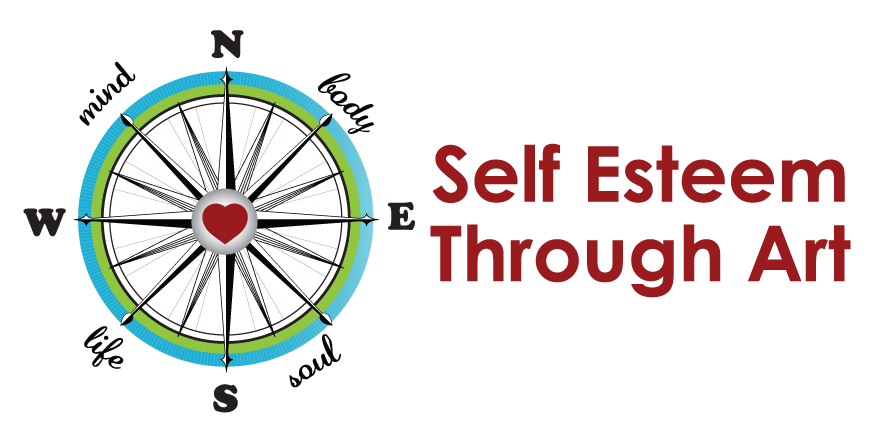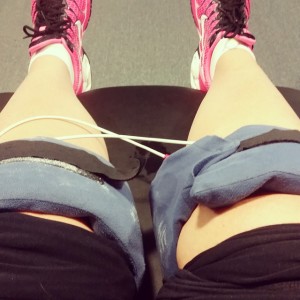I am going to ease into this story with a bit of background info, because it is important for you to get the context. But, the story holds an important message (important enough for me to break my lengthy blog silence) so I want you to hang in there with me, okay?
I have had horrible bilateral knee pain for the past few years. I largely ignored it (often citing my high pain tolerance as justification for neglecting to seek a diagnosis—as if one deserves a medal for such things. “Oh, I am tough. I can suck it up. It will be better in a few days. Blah, blah, blah.”) and the pain would ebb and flow. I’d have a good week followed by a month of swelling and significantly decreased range of motion. A brisk walk would result in me not being able to bend my leg for two weeks. I was no longer able to crouch, squat, or walk on uneven terrain (such as sand) and going up and down stairs was a literal and figurative pain. So, I sat. And in sitting, the edema abated, but then my muscles started to atrophy. And, atrophied muscles do not stabilize joints very well, so the pain got worse. I finally got sick enough of the cycle to see a doctor and my MRI report (for just one knee) was over two pages long. My joints had been giving me signs that something serious was wrong, but I ignored them.
For the past 7 weeks, I have been in physical therapy for my knees. I have been in the office two to three times per week, for two to two and a half hours at a time. I often joke that physical therapy has become a part-time job, and in a way it has. Because both of my knees are symptomatic, my treatment regimen is a lot like Doublemint Gum…double the pleasure, double the fun. Double the time commitment. My therapist started our treatment relationship by saying, “You are carving this time out for me right now. I expect you to keep carving it out for yourself long after we are through.” I liked her immediately.
Where I joke about it being a total time-suck, I actually really enjoy physical therapy. I was a sports medicine major, so I enjoy the modalities and seeing how treatment techniques have changed since I last practiced as an athletic trainer. I love the quantitative analysis that goes along with a rehab plan such as range of motion improving 15° and a one-inch decrease in joint effusion. I’ve gotten more exercise in the past seven weeks than I had in the seven months prior, and as a result, my knees are feeling better and my muscles are feeling stronger. Plus, my therapist is a rock star and she says she loves my laugh.
I was in there a little over a week ago and, as I worked my way through my treatment program, was privileged to hear this wonderful interaction between my therapist and another one of her clients. The conversation was a gift and the advice was timeless. Listen up!
It started out as conversations often do between therapist and client: “How are you feeling today?” The client was talking about this chronic pain behind her knee and how she didn’t know what it was a result of and how she didn’t understand her body and its mechanics and how she was tired of these things “suddenly happening.” And, then, my physical therapist hit her (and me, because I was listening) with the ultimate TRUTH BOMB! She said, “I need you to understand something, you don’t have to have an in-depth knowledge of anatomy and physiology to be in tune with what is happening with your body. But, you DO NEED TO PAY ATTENTION TO THE SIGNS BECAUSE MOST OF THE TIME THINGS DO NOT ‘JUST HAPPEN’— THERE ARE WARNING SIGNS EVERYWHERE AND YOU NEED TO BE PAYING ATTENTION!” (*IMPORTANT: she didn’t yell at her…I am simply capitalizing for effect.) After hearing more of the convo, there had been warning signs and the client had ignored them. While out for a 4-mile run, twinges of pain presented themselves at mile 2, but they were ignored. Prior to the run, there was extreme tightness due to a lengthy period of inactivity, but that was also ignored. The client mentioned that walking up hills was painful, but paid it no mind. So. Many. Signs. But, the client wasn’t tuned in and, as such, felt that her injury was of sudden onset. The therapist encouraged pre, during, and post-onset awareness. What were you doing before you noticed the pain? Sitting more than usual? Wearing different footwear? What were you doing when the pain started? Exercising? Sleeping? What kind of pain was it? Acute? Stabbing? Achy? Dull? Shooting? What did you do after? Ice? Take anti-inflammatories? Do nothing?
Man, I have been thinking of that conversation ever since I heard it! My therapist was so on the money, and not just physiologically speaking. This was hard-core life advice she just doled out and I don’t even know if she realized it.
Think about it…
How many times have you heard someone say, “My marriage just fell apart”?
Or, “They just fired me for no reason!”
Or, “I don’t know why they are so pissed at me.”
Or, “I can’t believe he/she cheated on me!”
Or, “I’m not sure why we aren’t friends anymore.”
Or, “I have no idea how I gained so much weight.”
Or, “I can’t believe he failed out of school!”
Or, “I can’t believe that, poof, the polar ice caps are gone.”
My physical therapist and I have a newsflash for you: your marriage didn’t just fall apart, you weren’t fired for no reason, and you didn’t just balloon up to 300 pounds over night. THERE ARE CLUES! BREADCRUMBS! INCIDENTS! But, there is a very real possibility that you haven’t been paying attention along the way. Your spouse most likely gave you ample signs (in the form of direct conversations, fights, ultimatums, etc). Your boss undoubtedly spoke to you more than once about your behavior, attire, etiquette, performance. You most definitely caught the cheater in a lie (lies), or they started staying out late, “working” more, dressing better, getting in shape, or mixing up their sexual habits (wanting more or much less, etc). Scientists have been talking about climate change for decades, but humans are inherently narcissistic and increasingly disconnected from nature, so many of us simply aren’t buying it.
What it comes down to is being present-minded, being tuned in, and trusting your gut. You don’t have to have an intimate knowledge of your body’s molecular structure to know that something feels “off” or you are experiencing pain. In much the same way, you don’t have to have a PhD in psychology to know that your spouse is unhappy and you don’t have to be the CEO or the head of human resources to understand work ethic and appropriate office behavior. And, you don’t have to be a Nobel Prize winning scientist to know that the weather is “off” in many parts of the world and natural disasters are on the rise and bees are dying and the earth is getting hotter and the pH of the ocean is askew. Life leaves clues and it is up to us to pick up on them as opposed to being incredulous and wondering how and when things went so awry.
Sure, sometimes life throws us an immediate and unavoidable curveball—car accident, lightening strike, terror attack. But, the vast majority of time we are in the driver’s seat and have complete control. We choose the chips over the fruit. Not just once, but enough times to affect our health. We repeatedly blow off studying for the party and the girlfriend. Your marriage failed because you missed the anniversary and you would rather look at your smart phone than into his/her eyes. Not just once, but repeatedly. You got fired because you missed that deadline. Not a singular deadline, but every deadline you had been given over 3 years.
Let’s start regularly asking ourselves some physical therapy-inspired questions as we motor through life.
- PRE:
- How were we showing up in our marriages for the six months prior to the affair?
- What were you eating and drinking for the three months prior to the diabetes diagnosis?
- How were your last two performance reviews at work?
- DURING:
- What did you do when he told you he didn’t love you anymore?
- Did you take notes about the back pain such as where it started, how long it lasted, and what—if anything—provided relief?
- Are you sticking to the treatment plan?
- POST:
- Now that you know pesticides are killing bees, how can you change your landscaping practices?
- Did you seek immediate treatment for the ankle injury or did you decide to wait it out?
- Did you accept responsibility for your part or place blame?
We’re not doing our pre, during, and post-onset life check-ins and we aren’t paying attention as well as we could be. To our bodies. To our relationships. To our children. To our careers. To the world around us. And, we need to start. Because most shit doesn’t just happen “all of a sudden” and it is up to us to individually and collectively fix all of the things that need fixing, whether it is knees, or marriages, or saving the bees.





I really enjoyed reading this Jen…your words are soooo TRUE…makes one think about ones behaviors.
Thank you